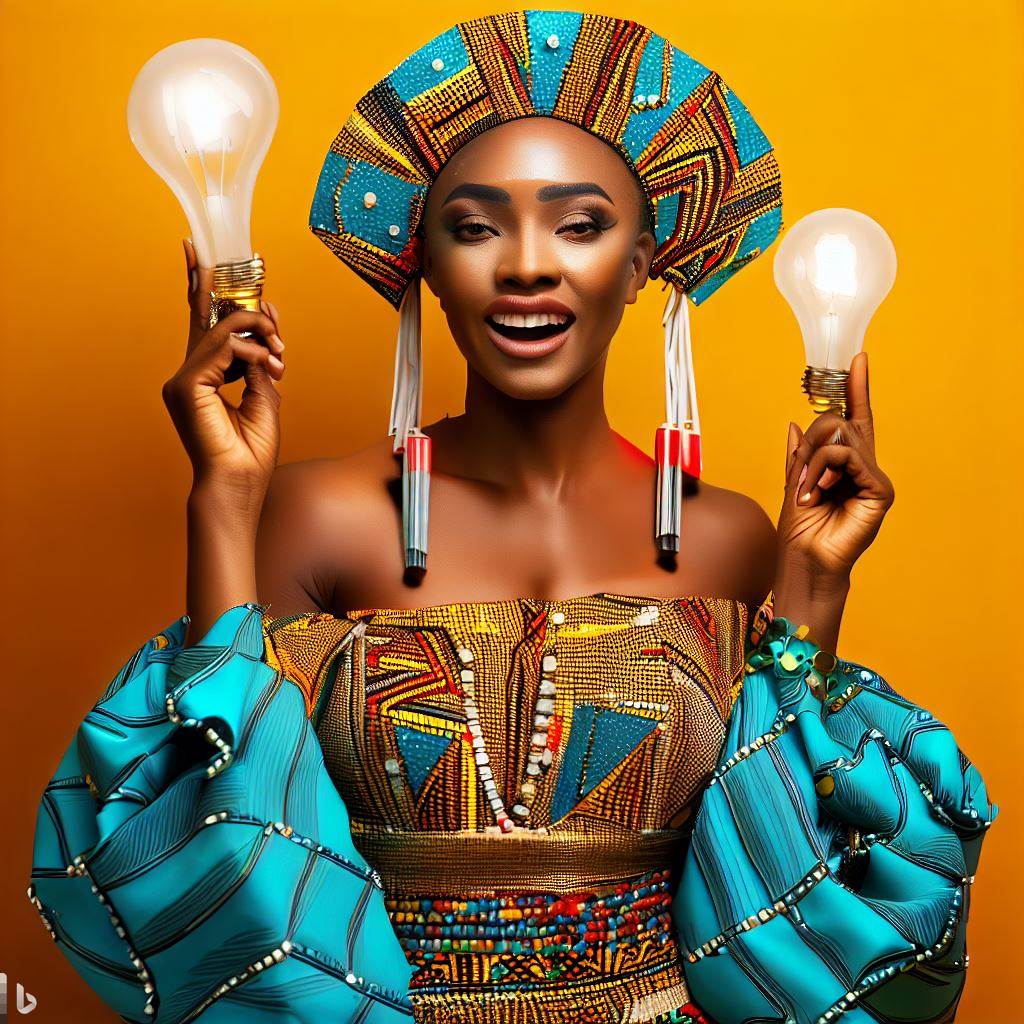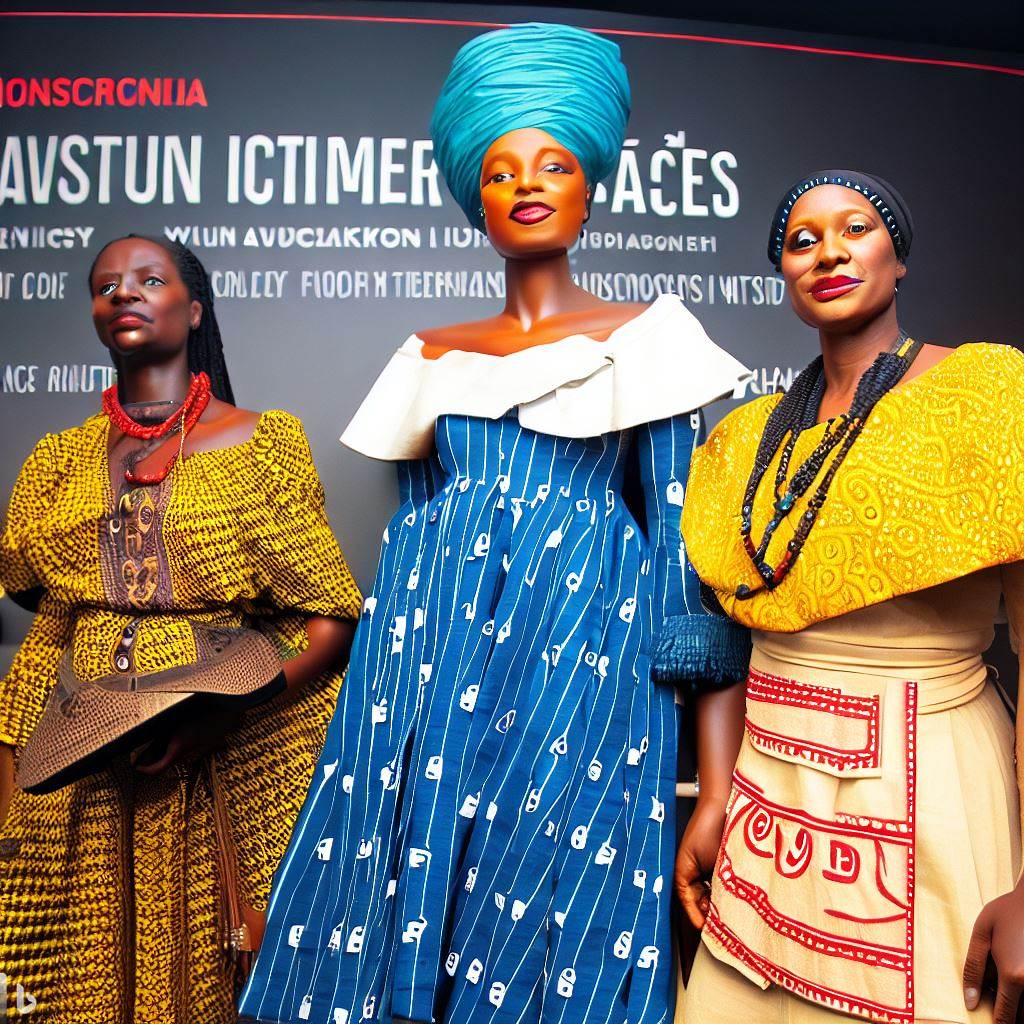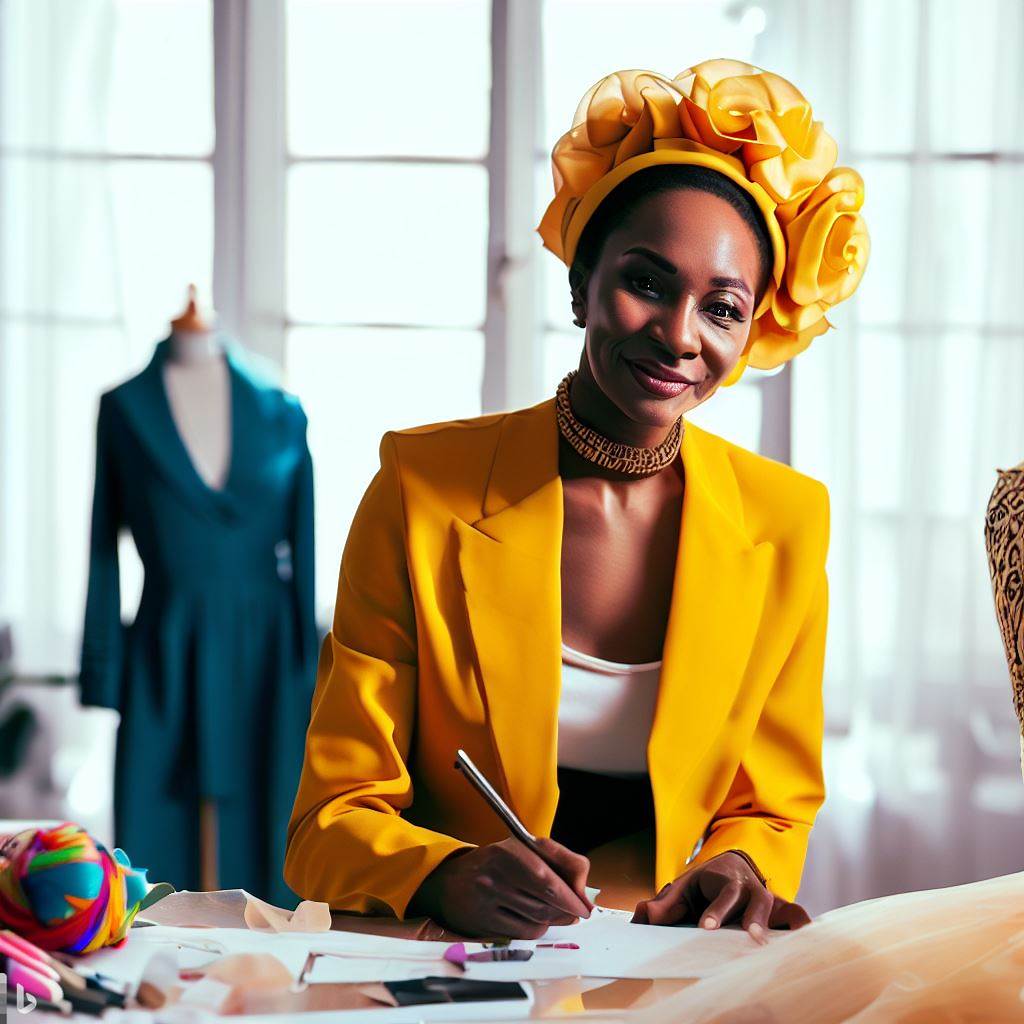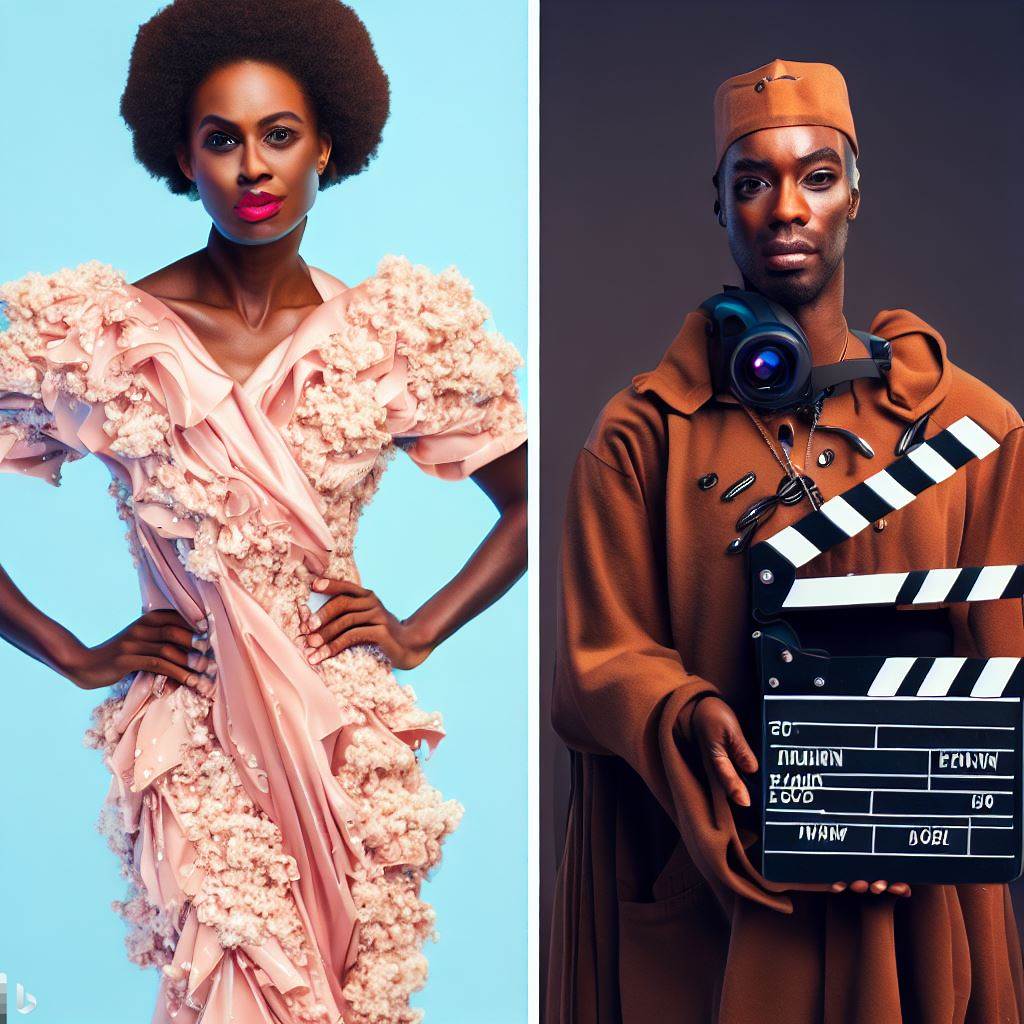Introduction
The Nigerian costume design profession trends have undergone significant changes in recent years, reflecting the evolving fashion industry.
Costume designers in Nigeria infuse authenticity, cultural representation, and aesthetic appeal into film, theater, and television productions.
They draw inspiration from the country’s multifaceted heritage, showcasing its uniqueness through attire.
Overview of Nigerian Costume Design Profession
- Nigerian costume design is a dynamic and culturally rich profession, blending tradition and contemporary fashion.
- It’s an art form that celebrates Nigeria’s diverse ethnicities, history, and creativity.
- Costume designers play pivotal roles in the entertainment industry, shaping characters and narratives.
- Their creations are seen in Nollywood films, theater productions, music videos, and fashion shows.
- These designers incorporate traditional fabrics, beadwork, and craftsmanship into modern clothing, showcasing Nigeria’s heritage.
- With the globalization of African fashion, Nigerian costume designers are gaining recognition on the international stage.
- Sustainable and eco-friendly practices are becoming more prevalent, emphasizing ethical fashion choices.
- Collaborations with international brands and artists are boosting the visibility of Nigerian costume designers worldwide.
- The future of this profession holds exciting possibilities, with designers continually pushing creative boundaries.
- This chapter provides a glimpse into the evolving world of Nigerian costume design, where tradition meets innovation.
Historical Background of Nigerian Costume Design
Origins and evolution of traditional Nigerian costumes
Nigerian traditional costumes have deep historical roots, reflecting the vibrant culture and diverse ethnic groups.
These costumes have evolved over centuries, influenced by factors such as climate, beliefs, and social status.
Each Nigerian ethnic group has unique traditional costumes, showcasing their distinct identity and cultural heritage.
- In the North, the Hausa people’s traditional costumes include flowing robes like the “babban riga” and colorful turbans.
- The Yoruba people of the Southwest flaunt their “iro” and “buba” attire, often made from elaborate and intricately patterned fabrics.
- Eastern Nigeria is home to the Igbo community, known for their traditional outfits like the “isiagu” and “george” wrappers.
- Traditional Nigerian costumes play an essential role in ceremonies, festivals, and other cultural celebrations.
- The evolution of these costumes represents the changing cultural landscape and modern influences on traditional practices.
With globalization, Nigerian costume design has become a source of inspiration for modern fashion trends.
Designers are incorporating traditional Nigerian elements into contemporary clothing, creating a fusion of traditional and modern styles.
Influence of colonization on costume designs
The arrival of colonial powers in Nigeria during the 19th century brought significant changes to costume designs.
European influences began to impact Nigerian fashion, leading to the adoption of Western-style clothing by the elite.
European fabrics like lace and silk gradually replaced traditional textiles in everyday wear.
During this period, clothing choices became a status symbol, with Western clothing associated with affluence and modernity.
- The introduction of sewing machines and tailoring techniques allowed for the mass production of Western-style clothing.
- Traditional Nigerian costumes started to be perceived as old-fashioned and backward, leading to a decline in their popularity.
- However, in recent years, there has been a resurgence of interest in traditional Nigerian fashion.
- Designers and fashion enthusiasts are reclaiming their cultural heritage by incorporating traditional elements into their designs.
- Events like the Lagos Fashion Week and the Aso-Ebi culture have also played a significant role in promoting Nigerian costume design.
- Through these initiatives, traditional Nigerian costumes are gaining recognition both nationally and internationally.
In fact, Nigerian costume design has a rich historical background rooted in the diverse ethnic groups of the country.
The evolution of traditional costumes reflects the changing cultural landscape and influences from colonization.
However, there is currently a resurgence of interest in traditional Nigerian fashion, as designers and enthusiasts embrace their cultural heritage.
This renewed appreciation is helping Nigerian costume design gain global recognition and contributing to the fusion of traditional and modern styles in the fashion industry.
Read: Case Study: Influential Nigerian Costume Designers’ Journey
Modern Nigerian Costume Design
Introduction of Western fashion elements
In recent years, there has been a significant integration of Western fashion elements into Nigerian costume design.
This infusion of Western influences has led to a modern and innovative approach to creating traditional Nigerian garments.
One notable trend is the incorporation of Western silhouettes and cuts into Nigerian clothing.
Traditional Nigerian garments, such as the agbada and buba, are now being tailored with a more fitted and structured design, giving them a contemporary twist.
This merging of traditional and Western styles has resulted in unique and eye-catching outfits.
Additionally, Nigerian designers have embraced the use of Western fabrics in their creations.
While traditional Nigerian fabrics like adire and ankara remain important, designers are incorporating chiffon, satin, and lace for added elegance and sophistication.
These fabrics not only enhance the visual appeal of the garments but also offer a more comfortable and lightweight alternative for modern Nigerian consumers.
Contemporary fashion brands and designers in Nigeria
Nigeria’s fashion scene has witnessed a surge in the emergence of contemporary fashion brands and designers who are making waves both locally and internationally.
These brands and designers have contributed to the modernization and growth of the Nigerian costume design profession.
- One prominent brand is Lisa Folawiyo’s Jewel by Lisa, known for its vibrant prints and intricate embellishments.
- Jewel by Lisa has gained recognition globally and has been worn by celebrities such as Beyoncé and Lupita Nyong’o.
- The brand’s unique fusion of traditional Nigerian aesthetics with contemporary designs has become a symbol of modern Nigerian fashion.
- Another notable designer is Lanre DaSilva Ajayi, whose eponymous label showcases a blend of Western silhouettes and traditional Nigerian motifs.
- Her exquisite designs have graced runways across the world and have been worn by notable figures like Michelle Obama and Genevieve Nnaji.
- Ajayi’s ability to seamlessly merge traditional Nigerian elements with modern fashion trends has made her a trailblazer in the industry.
- Other contemporary fashion brands and designers making an impact in Nigerian costume design include Mai Atafo, Bridget Awosika, and Deola Sagoe.
These creative minds have pushed boundaries and brought a fresh perspective to the industry, embracing modern techniques and influences while staying rooted in Nigerian culture.
In short, the modern Nigerian costume design profession has been shaped by the introduction of Western fashion elements and the rise of contemporary fashion brands and designers.
Incorporating Western techniques and fabrics elevates traditional Nigerian garments, enhancing their appeal and versatility.
The creativity and innovation displayed by Nigerian designers have garnered international attention, solidifying Nigeria’s presence in the global fashion industry.
Read: How Costume Design Contributes to Nigerian Film Narratives
Traditional Nigerian Costumes
Traditional fabrics and materials used
- Ankara: A popular fabric in Nigeria, it showcases vibrant colors and bold patterns, often made of cotton.
- Aso Oke: A handwoven fabric, usually made of silk or cotton, used for special occasions like weddings.
- Adire: A resist-dyed fabric made using indigo dye, known for its intricate patterns and vibrant colors.
- George: A fabric with beautiful embroidered designs, often used for traditional ceremonies and celebrations.
Significance and symbolism of traditional costumes
- Cultural Identity: Traditional costumes reflect the rich cultural heritage of Nigeria and help preserve ethnic traditions.
- Symbolic meanings: Each costume carries symbolic meanings related to status, age, marital status, and social standing.
- Celebration and Festivals: Traditional costumes are worn during festivals and celebrations to showcase pride and unity.
- Transition into adulthood: Some traditional costumes are worn during rites of passage ceremonies to mark the transition into adulthood.
- Historical representation: Traditional costumes serve as a visual representation of Nigeria’s history and heritage.
- Community connections: Traditional costumes reinforce the sense of community and belonging among Nigerian people.
- Economic impact: The Nigerian costume design profession contributes to the economy by promoting traditional fabrics and materials.
- Cultural exchange: Nigerian traditional costumes have gained international recognition and contribute to cultural exchanges.
- Preservation of customs: Traditional costumes play a crucial role in preserving and passing on cultural customs and traditions.
- Promoting diversity: Nigerian traditional costumes represent the diverse ethnic groups and promote cultural diversity within the country.
In essence, traditional Nigerian costumes hold great significance in preserving cultural heritage, identity, and promoting unity among the diverse ethnic groups in the country.
The choice of fabrics and materials used in these costumes adds to their symbolism and aesthetic appeal.
The Nigerian costume design profession not only contributes to the economy but also plays a vital role in preserving and showcasing the customs and traditions of the Nigerian people.
Moreover, traditional costumes have gained international recognition, contributing to cultural exchange between Nigeria and other countries.
By embracing and promoting traditional costumes, Nigeria ensures the preservation of its rich cultural heritage for future generations.
Read: Influence of Nigerian Textiles in Costume Design
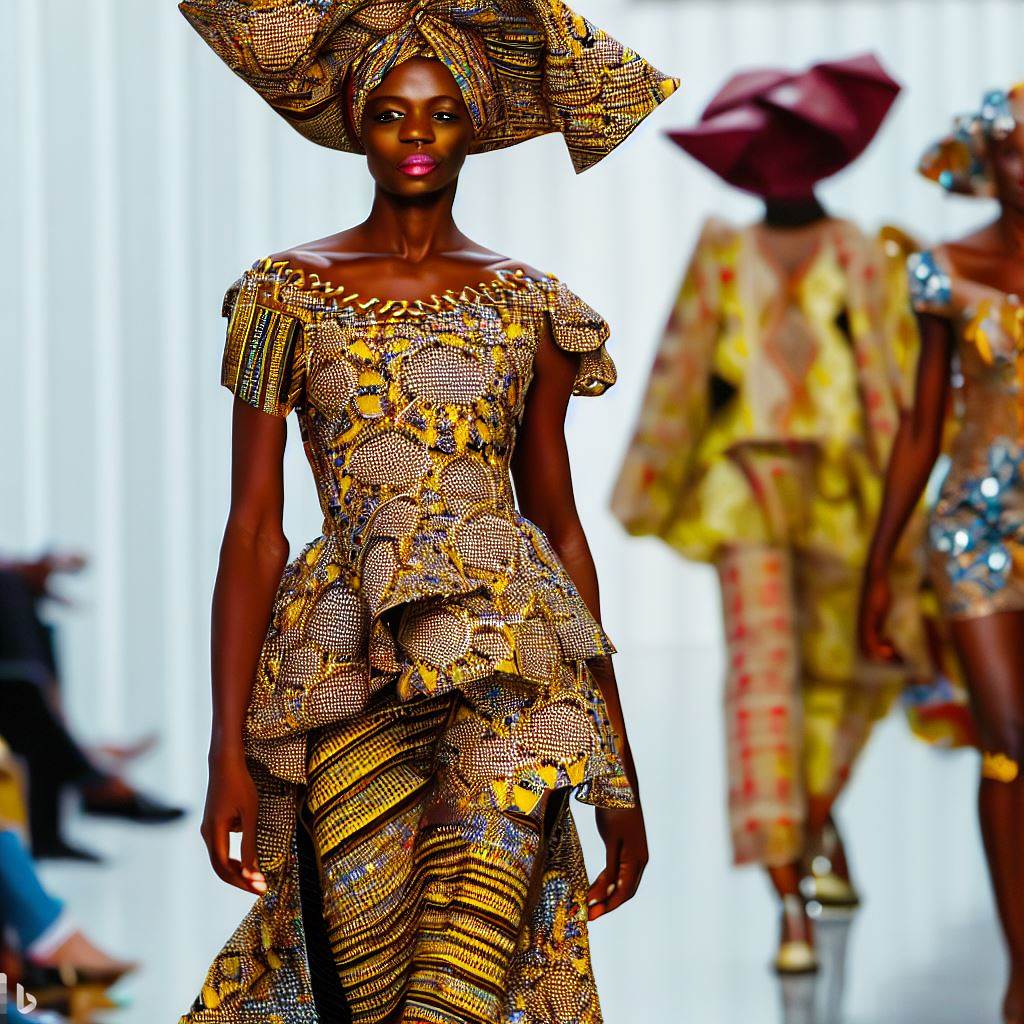
Current Trends in Nigerian Costume Design
Fusion of traditional and modern elements in designs
Nigerian costume design has evolved over the years, embracing a fusion of traditional and modern elements.
Designers have found creative ways to incorporate traditional Nigerian fabrics, prints, and motifs into contemporary fashion designs.
- Nigerian designers are blending traditional fabrics like Ankara, Aso Oke, and Adire with modern silhouettes.
- Traditional patterns and motifs such as tribal prints and geometric shapes are being incorporated into modern clothing designs.
- This fusion of traditional and modern elements creates unique and innovative costume designs that celebrate Nigerian culture while appealing to a global audience.
Popularity of Nigerian fashion styles internationally
Nigerian fashion has gained significant popularity on the international stage in recent years. Nigerian designers are making waves with their unique and vibrant fashion styles.
- Nigerian fashion shows and events like Lagos Fashion Week and Arise Fashion Week have gained global recognition.
- Nigerian fashion icons and celebrities like Tiwa Savage, Genevieve Nnaji, and Davido are influencing global fashion trends.
- International celebrities and influencers are embracing Nigerian fashion styles and incorporating them into their own wardrobes.
- Nigerian prints, fabrics, and designs are being featured on runways around the world, including in fashion capitals like Paris and New York.
Most importantly, the current trends in Nigerian costume design are characterized by a fusion of traditional and modern elements, resulting in unique and innovative designs.
The popularity of Nigerian fashion styles on the international scene further highlights the global influence and recognition of Nigerian designers.
As Nigerian fashion continues to evolve, it is sure to make even greater strides in the global fashion industry.
Challenges Faced by Nigerian Costume Designers
Limited access to resources and funding
Nigerian costume designers often face challenges due to limited access to necessary resources and funding.
- The lack of financial support can hinder their creative process and overall success in the industry.
- Limited availability of quality fabrics and materials.
- Difficulty in sourcing specialized equipment and tools for costume designing.
- Inadequate infrastructure and facilities for costume production.
- Limited access to educational programs and workshops for skill enhancement.
- Insufficient funds to invest in marketing and promotion activities.
Impact of counterfeit fashion on the industry
Counterfeit fashion products have a significant impact on Nigerian costume designers and the industry as a whole.
They pose various challenges that affect the growth and reputation of authentic Nigerian costume designs.
- Decreased demand for genuine Nigerian costumes due to cheaper counterfeit alternatives.
- Loss of potential revenue and market share for Nigerian designers.
- Struggle to protect intellectual property rights and prevent design theft.
- Damage to the reputation and image of Nigerian costume designers.
- Difficulty in creating a distinct Nigerian fashion identity in a market flooded with counterfeits.
Overall, these challenges highlight the need for support and interventions to overcome the limitations faced by Nigerian costume designers.
Efforts should focus on providing sufficient resources, financial assistance, and implementing stricter regulations against counterfeiting.
Success Stories in Nigerian Costume Design
These success stories in Nigerian costume design demonstrate the talent, creativity, and growing influence of Nigerian fashion designers on the global stage.
With their unique blend of traditional African elements and contemporary design, they are reshaping the perception of African fashion and challenging Western dominance in the industry.
Notable Nigerian fashion designers
Notable designers like Deola Sagoe, Lisa Folawiyo, and Ituen Basi have gained recognition for their unique aesthetics and have become symbols of Nigerian design excellence.
Their intricate craftsmanship, attention to detail, and ability to combine traditional and modern elements have made them highly sought-after both locally and internationally.
- Deola Sagoe: Known for her avant-garde designs and intricate craftsmanship.
- Lisa Folawiyo: Recognized for mixing traditional African textiles with contemporary design elements.
- Ituen Basi: Celebrated for creating vibrant and bold prints inspired by Nigerian culture.
- Frank Oshodi: Renowned for his innovative approach to blending African and Western fashion.
- Tokyo James: Emerging designer gaining international recognition for his gender-fluid designs.
Achievements and recognition in international fashion events
International fashion events have provided a platform for Nigerian designers to showcase their talent and gain exposure.
By participating in fashion weeks in fashion capitals like New York, Paris, and London, they have been able to attract attention from influential figures in the industry.
- Nigerian designers have showcased their collections at prominent fashion weeks globally, including New York, Paris, and London.
- They have attracted the attention of influential fashion editors, celebrities, and buyers from around the world.
- In 2018, Nigerian designer Kenneth Ize was a finalist for the prestigious LVMH Prize for Young Fashion Designers.
- Orange Culture, a Nigerian menswear brand, received the Fashion Focus Prize at the 2019 International Fashion Showcase in London.
- Designers like Amaka Osakwe of Maki Oh and Adebayo Oke-Lawal of Orange Culture have dressed international celebrities like Beyoncé and Lupita Nyong’o.
The recognition received by Nigerian designers at these events has helped in elevating the status of African fashion globally.
Their innovative designs, vibrant prints, and cultural motifs challenge stereotypes, revealing the richness and diversity of Nigerian culture.
These achievements and recognition have not only brought global attention to Nigerian costume design but have also had a positive impact on the local fashion industry.
They have inspired a new generation of designers and entrepreneurs, encouraging them to pursue careers in the thriving fashion sector.
Additionally, global acclaim for Nigerian designers fuels higher demand, bolstering the country’s economic growth through fashion.
Generally, the success stories of Nigerian costume design highlight the remarkable talent and creativity of Nigerian fashion designers.
With their distinct aesthetics and global fashion involvement, they’re reshaping how the world views African fashion, elevating Nigeria’s status as a fashion powerhouse.
Read: Showcasing Nigerian Identity through Costume Design
Future Outlook for Nigerian Costume Design Profession
Potential growth and opportunities
The fashion industry in Nigeria has shown significant growth over the years.
- Nigerian designers are gaining recognition on the global stage, opening doors for new opportunities.
- The growing popularity of African fashion has created a demand for Nigerian costume designers.
- With the rise of e-commerce, Nigerian designers can now reach a wider audience and expand their customer base.
- Government initiatives and support for the fashion industry contribute to its potential growth.
- Nigerian costume design profession has the potential to become a major contributor to the country’s economy.
Importance of promoting and preserving Nigerian fashion heritage
Nigerian fashion has a rich heritage and cultural significance.
- By promoting Nigerian fashion, we preserve our cultural identity and traditions.
- Promoting Nigerian fashion helps to raise awareness and appreciation for our unique designs.
- Preservation of Nigerian fashion heritage ensures that future generations can still embrace their roots.
- Nigerian costume design profession contributes to the preservation of traditional craftsmanship and skills.
- By showcasing our fashion heritage, we can attract tourists and boost the local fashion industry.
Basically, the future outlook for the Nigerian costume design profession is promising.
The potential growth and opportunities in the industry, combined with the importance of promoting and preserving our fashion heritage, are key factors in its success.
With continued support and recognition, Nigerian costume designers can make a significant impact both locally and globally.
It is crucial for the government, organizations, and individuals to continue investing in the industry and promoting Nigerian fashion to secure a prosperous future for the profession.
See Related Content: Photography Workshops and Seminars: Learning in Nigeria
Conclusion
Key points discussed in the blog post reveal the current trends in Nigerian costume design profession.
Nigerian costume designers are blending traditional and modern styles, using vibrant colors and unique patterns to create stunning outfits.
They are also incorporating sustainable practices and raising awareness about cultural heritage.
To support Nigerian costume designers, readers can take action.
Firstly, they can explore and purchase Nigerian-made costumes, promoting local talent.
Additionally, they can engage with Nigerian designers on social media platforms, sharing their work and spreading awareness.
Attending fashion shows and exhibitions featuring Nigerian costumes is another way to support the industry.
By supporting Nigerian costume designers, readers can contribute to the growth and preservation of Nigeria’s rich cultural heritage.
As we explore “Nigerian Costume Design Profession Trends,” we anticipate a thriving industry that offers economic opportunities and international recognition.
Let’s celebrate and promote the incredible artistry of Nigerian costume designers!

